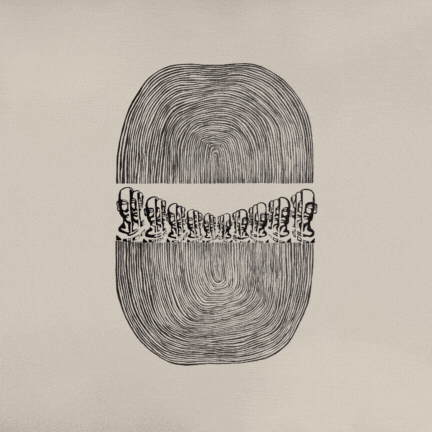Amália Baraona – Mulheres
( Fo(u)r PR606, CD Review by Alison Bentley)
Atmospheric Brazilian songs about sun and love- the perfect antidote to the cold and rain. Portuguese vocalist Amália Baraona grew up in Brazil listening to Bossa Nova, and sings in her native language. This recording with top Italian jazz musicians (you may have heard some of them in the UK with saxophonist Renato D’Aiello) takes the listener into an exquisite romantic world. The CD’s called Mulheres (Women), and the songs are about women- mostly from the classic bossa nova era- written and originally sung by men.
Amália’s voice is gentle, completely natural, and deceptively understated. Her breathy tones and conversational style mask a sophistication and control. She studied with Maria Pia de Vito (who’s recorded with John Taylor) and has something of Maria’s light, flexible tone, though less experimental in style. The opening song, A Rita, has a breezy, playful feel. The interweaving of voice and flute suggests something of Herbie Mann’s work with Jobim.
Francesco Lomangino’s flute solos are sparkling, a little boppy, always putting the bossa rhythms first. Amália’s rhythmic sense and intonation is superb on the the tricky arpeggiated melodies- you feel as if you’re in good hands. Rosa Morena and A Voleira are also bright optimistic tunes, and you can hear the smile in her voice- hints of Elis Regina, but softer.
Pianist arranger Bruno Montrone has stripped down the original lush songs into taut, simpler, jazzier versions. His own fine solos are bebop-influenced but keep true to the bossa rhythms, as in Januaria. There’s a little of Eliane Elias’ expressive piano in the colla voce ballad Ligia, (her version with Joe Henderson). Dário Di Lecce’s bass is strong and rhythmic. A lovely arco countermelody blends with the voice in Maninha, a 3/4 ballad.
Fabio delle Foglie’s drumming sounds wonderful in the sensitive ballads, as much as in the classic bossa novas. In another 3/4 ballad, partly in French, (Joana Francesca) Amália sounds very like Fleurine. In Joyce’s Essar Mulher (the only song written by a woman) her voice is less intense than the original. Amália has more of Bebel Gilberto’s laid-back qualities. Guido Di Leone’s beautiful bossa nova guitar is showcased here. His Baden Powell-ish solos are very Spanish-classical.
Most jazz vocalists have a Brazilian Portuguese song or two in their repertoire, but these neglected 60s and 70s songs (mostly by Chico Buarque, Dorival Caymmi) are rarely heard in modern jazz. Nostalgia isn’t what it used to be, and that’s good – these old songs are given a fresh, jazzy twist, sung with real summery charm.
Atmospheric Brazilian songs about sun and love- the perfect antidote to the cold and rain. Portuguese vocalist Amália Baraona grew up in Brazil listening to Bossa Nova, and sings in her native language. This recording with top Italian jazz musicians (you may have heard some of them in the UK with saxophonist Renato D’Aiello) takes the listener into an exquisite romantic world. The CD’s called Mulheres (Women), and the songs are about women- mostly from the classic bossa nova era- written and originally sung by men.
Amália’s voice is gentle, completely natural, and deceptively understated. Her breathy tones and conversational style mask a sophistication and control. She studied with Maria Pia de Vito (who’s recorded with John Taylor) and has something of Maria’s light, flexible tone, though less experimental in style. The opening song, A Rita, has a breezy, playful feel. The interweaving of voice and flute suggests something of Herbie Mann’s work with Jobim.
Francesco Lomangino’s flute solos are sparkling, a little boppy, always putting the bossa rhythms first. Amália’s rhythmic sense and intonation is superb on the the tricky arpeggiated melodies- you feel as if you’re in good hands. Rosa Morena and A Voleira are also bright optimistic tunes, and you can hear the smile in her voice- hints of Elis Regina, but softer.
Pianist arranger Bruno Montrone has stripped down the original lush songs into taut, simpler, jazzier versions. His own fine solos are bebop-influenced but keep true to the bossa rhythms, as in Januaria. There’s a little of Eliane Elias’ expressive piano in the colla voce ballad Ligia, (her version with Joe Henderson). Dário Di Lecce’s bass is strong and rhythmic. A lovely arco countermelody blends with the voice in Maninha, a 3/4 ballad.
Fabio delle Foglie’s drumming sounds wonderful in the sensitive ballads, as much as in the classic bossa novas. In another 3/4 ballad, partly in French, (Joana Francesca) Amália sounds very like Fleurine. In Joyce’s Essar Mulher (the only song written by a woman) her voice is less intense than the original. Amália has more of Bebel Gilberto’s laid-back qualities. Guido Di Leone’s beautiful bossa nova guitar is showcased here. His Baden Powell-ish solos are very Spanish-classical.
Most jazz vocalists have a Brazilian Portuguese song or two in their repertoire, but these neglected 60s and 70s songs (mostly by Chico Buarque, Dorival Caymmi) are rarely heard in modern jazz. Nostalgia isn’t what it used to be, and that’s good – these old songs are given a fresh, jazzy twist, sung with real summery charm.
Categories: miscellaneous













Dear Ms Bentley,
Thank you for this wonderful Review of “Mulheres”, and for bringing out the talent of all the musicians who worked on this project with me.
Best regards,
Amália